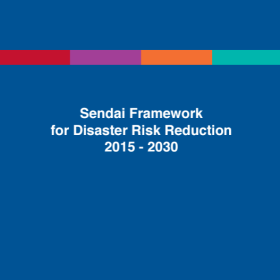Adaptation and mitigation - Resources
To effectively implement Mainstreaming, Monitoring, Evaluation, and Learning (MMEL) in your project or planning, it's crucial to first grasp the fundamental concepts of climate change and recognise the functions these components play in the context of climate change in the Pacific Island region. This page provides you with these essential background understandings to get you started.
Adapting to Climate Change in the Pacific: The PACC Programme
The Pacific Adaptation to Climate Change (PACC) programme began in 2009 as a regional response to the climate change threat. It is currently the largest climate change adaptation initiative in the region, with activities in 14 Pacific island countries and territories. The programme is building an integrated and coordinated approach to the climate change challenge through three main components: practical demonstrations of adaptation measures, driving the mainstreaming of climate risks into national development planning and activities, and sharing knowledge in order to build adaptive capacity.
Adapting to Climate Change in the Pacific: The PACC Programme
The Pacific Adaptation to Climate Change (PACC) programme began in 2009 as a regional response to the climate change threat. It is currently the largest climate change adaptation initiative in the region, with activities in 14 Pacific island countries and territories. The programme is building an integrated and coordinated approach to the climate change challenge through three main components: practical demonstrations of adaptation measures, driving the mainstreaming of climate risks into national development planning and activities, and sharing knowledge in order to build adaptive capacity.
United Nations Climate Change - Adaptation and Resilience
UN website providing background information on climate change adaptation and resilience, including the different stages of the adaptation cycle components.
United Nations Climate Change - Adaptation and Resilience
UN website providing background information on climate change adaptation and resilience, including the different stages of the adaptation cycle components.

Sendai Framework for Disaster Risk Reduction 2015 - 2030
The Sendai Framework for Disaster Risk Reduction 2015-2030 outlines seven clear targets and four priorities for action to prevent new and reduce existing disaster risks: (i) Understanding disaster risk; (ii) Strengthening disaster risk governance to manage disaster risk; (iii) Investing in disaster reduction for resilience and; (iv) Enhancing disaster preparedness for effective response, and to "Build Back Better" in recovery, rehabilitation and reconstruction. It aims to achieve the substantial reduction of disaster risk and losses in lives, livelihoods and health and in the economic, physical, social, cultural and environmental assets of persons, businesses, communities and countries over the next 15 years.

Sendai Framework for Disaster Risk Reduction 2015 - 2030
The Sendai Framework for Disaster Risk Reduction 2015-2030 outlines seven clear targets and four priorities for action to prevent new and reduce existing disaster risks: (i) Understanding disaster risk; (ii) Strengthening disaster risk governance to manage disaster risk; (iii) Investing in disaster reduction for resilience and; (iv) Enhancing disaster preparedness for effective response, and to "Build Back Better" in recovery, rehabilitation and reconstruction. It aims to achieve the substantial reduction of disaster risk and losses in lives, livelihoods and health and in the economic, physical, social, cultural and environmental assets of persons, businesses, communities and countries over the next 15 years.
Pacific Ecosystem-based Adaptation Tool
The Pacific Ecosystem-based Adaptation Tool (Pacific EBA tool) provides decision support for planning for Ecosystem-based Adaptation (EbA) initiatives in the Pacific. It provides guidance on the types of EbA interventions that may be considered depending on different local circumstances and requirements across the region.
Pacific Ecosystem-based Adaptation Tool
The Pacific Ecosystem-based Adaptation Tool (Pacific EBA tool) provides decision support for planning for Ecosystem-based Adaptation (EbA) initiatives in the Pacific. It provides guidance on the types of EbA interventions that may be considered depending on different local circumstances and requirements across the region.
Climate Change Adaptation and Mitigation in the Tourism Sector: Frameworks, Tools and Practices
This document forms part of the “UNEP Manuals on Sustainable Tourism” and the UNWTO sustainable tourism policy guidebooks publication series, aiming to provide guidance to tourism stakeholders to integrate sustainability into their decision making processes and operation
Climate Change Adaptation and Mitigation in the Tourism Sector: Frameworks, Tools and Practices
This document forms part of the “UNEP Manuals on Sustainable Tourism” and the UNWTO sustainable tourism policy guidebooks publication series, aiming to provide guidance to tourism stakeholders to integrate sustainability into their decision making processes and operation

